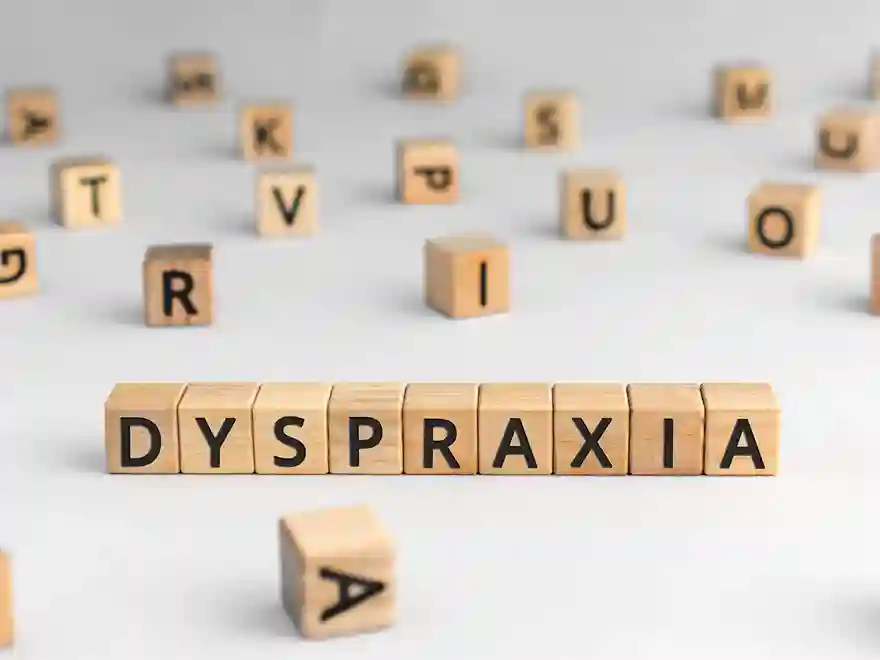Dyspraxia Meaning
Dyspraxia is a common disorder that affects movement and coordination. It is also known as developmental coordination disorder. However, dyspraxia does not affect a person’s intelligence.
Instead, it affects coordination skills, such as doing things that require balance, playing sports, or learning to drive a car. Dyspraxia can also affect fine motor skills, such as writing or using small objects.
Symptoms of Dyspraxia
Symptoms of dyspraxia depend on the age of the individual. If a baby has dyspraxia, their developmental milestones may seem delayed, compared to other children.
As a child grows, he or she may also experience delays in:
- Crawl.
- Walk.
- Potty training.
- Eat alone.
- Dress yourself.
Dyspraxia makes it difficult for someone with dyspraxia to coordinate physical movements. For example, a child may want to walk across the living room carrying their school books. However, they cannot do so without tripping, bumping into things, or dropping the books.
Other signs and symptoms may include:
- Unusual posture.
- Difficulty with fine motor skills that affects writing, artwork, and playing with blocks and puzzles.
- Coordination problems that make it difficult to jump, hop, or catch a ball.
- Flapping hands, fidgeting, or being easily excited.
- Eating and drinking is messy.
- Easy to get angry.
In adults, there are various symptoms that can occur when suffering from dyspraxia, such as:
- Abnormal posture.
- Problems with balance and movement, or gait abnormalities.
- Poor hand-eye coordination.
- Fatigue.
- Difficulty learning new skills.
- Organizational and planning issues.
- Difficulty writing or using the keyboard.
- Having difficulty with household chores.
- Social awkwardness or lack of self-confidence.
Dyspraxia has nothing to do with intelligence. If you have dyspraxia, you may be stronger in areas such as creativity, motivation, and determination. Symptoms vary from person to person.
Causes of Dyspraxia
The cause of dyspraxia is still unknown. However, this condition is thought to occur due to a disorder in a person’s nerve cells that control muscles (motor neurons).
If motor neurons cannot form the proper connections, for whatever reason, the brain will take longer to process the data. This is what then causes dyspraxia.
Risk Factors for Dyspraxia
Some factors that can increase the risk of dyspraxia are:
- Premature birth.
- Low birth weight.
- Family history of dyspraxia.
- Exposure to alcohol or narcotic drugs during pregnancy.
Complications of Dyspraxia
Dyspraxia can cause several complications such as:
- Communication disorders. Occurs when dyspraxia disorders are accompanied by speech delays, making it difficult for children to communicate ideas or concepts.
- Behavioral and emotional disorders. This is usually caused by children not being able to behave well at school or at home. They tend to have anxiety to socialize with their environment because of the motor disorders they have.
- Academic disorders. Due to disorders in fine motor skills, some children have difficulty writing and taking notes in lessons, which can hinder the child’s academic abilities.
Dyspraxia Diagnosis
A doctor can diagnose dyspraxia by looking in detail at the child’s developmental history, intellectual abilities, and the development of the child’s gross and fine motor skills.
Examination of the child’s gross and fine motor skills can be done to see the extent of the child’s motor development. Here’s how:
- Gross motor skills. Knowing how children can use large muscles to coordinate body movements, including jumping, throwing, walking, running, and maintaining balance.
- Fine motor skills. Knowing how your child can use smaller muscles to make movements, such as buttoning, cutting out shapes, and writing.
Dyspraxia Treatment
Although dyspraxia cannot be cured, there are several ways to improve the motor skills of sufferers. Here are treatments that can be given to dyspraxia sufferers:
- Occupational therapy. Done to see the child’s function in life, both at home and at school. This therapy will focus the child to be able to behave and do daily activities.
- Speech therapy. Used if there is a speech delay in a child with dyspraxia.
- Active play. Is a therapy that involves the child’s physical, where the child will play actively both indoors and outdoors. This is believed to improve the child’s motor skills and coordination.
- Cognitive Behavioral Therapy (CBT). Conducted to train children’s behavior.
Dyspraxia Prevention
Dyspraxia can be prevented by the following things:
- Avoid smoking, alcohol, and narcotic drugs during pregnancy.
- Check your pregnancy regularly.
- Genetic counseling, if a family history of a similar disorder is found.
When to See a Doctor?
Parents who find their child has a disorder in motor development such as dyspraxia symptoms, can immediately discuss with a pediatrician. This is so that the child can get further examination and treatment.

